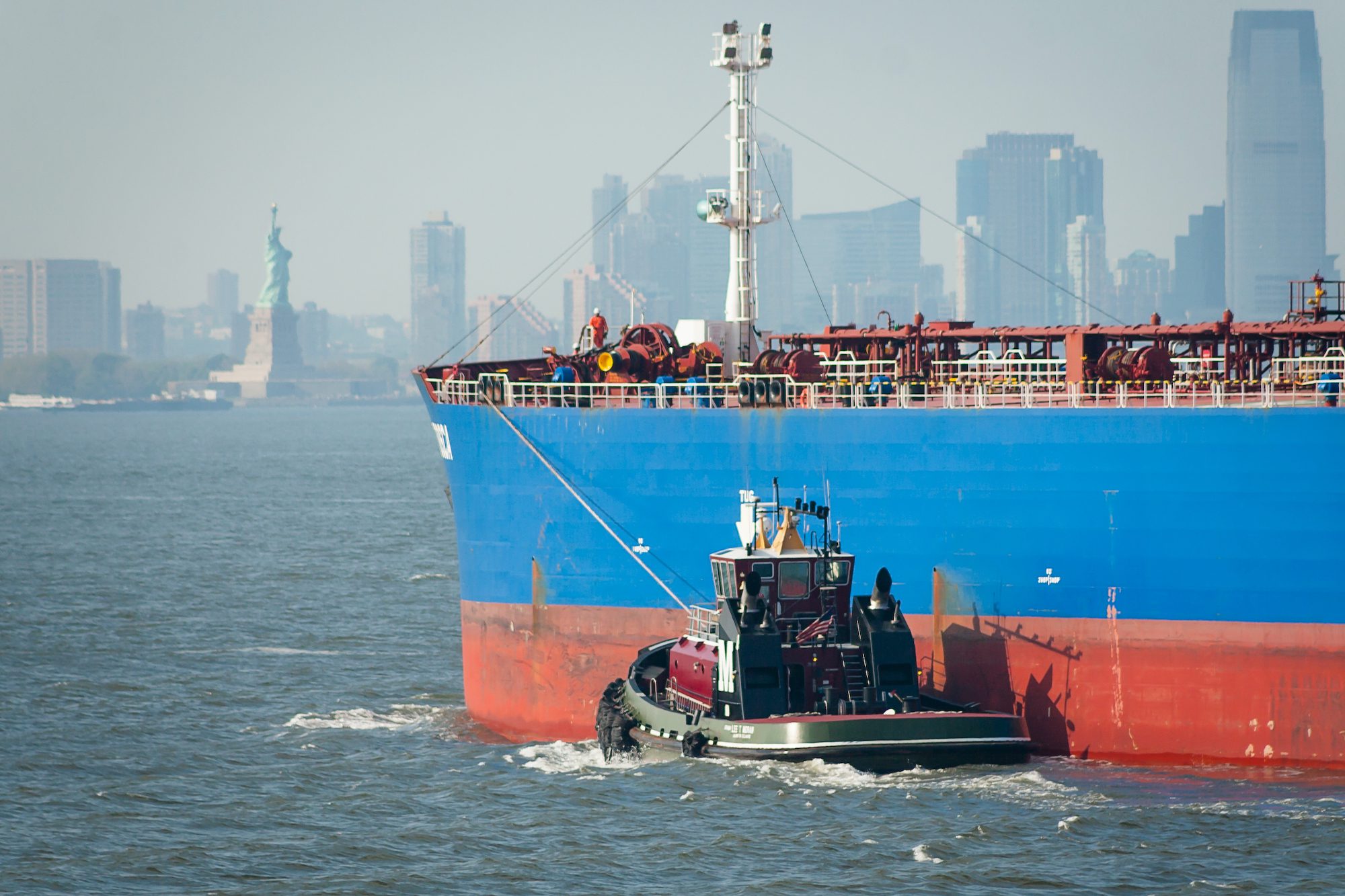Trump Trade Wars: A Look At Winners And Losers Since 2016
by Tom Orlik (Bloomberg) Who Loses in Trump’s Endless Trade War? In 2016, Donald Trump campaigned for the US presidency on a promise to beat China. Once in office, he unleashed a...

ESG (Environment-Social-Governance) considerations are tied integrally into shipping finance. For example, the costs of vessel loans (and soon, maritime hull insurance) are linked explicitly to achievement of specific objectives for “carbon intensity.”
At the same time, rapid developments in data management and technologies for transmitting all types of data from vessels are changing the scope of vessel operations, from the bridge to the engine room (with some cargo holds in between).
With all this in mind, the Marine Money conference this week included an excellent session titled “Using Technology to Meet Corporate ESG Goals.” The panel’s moderator, Mr. David Levy, Chief Marketing Officer of software venue OrbitMi, along with panelist Peter Björkborg, StenaBulk’s Manager of Sustainability & Transformation, are insiders to all these trends. OrbitMI, now an independent company, was originally developed in-house by the Gothenburg-based owner of crude oil, products and LNG tankers. Mr. Levy threw out very topical questions which the panelists then answered; by the conclusion of the half hour session, some important themes were emerging.
To date, “ESG” has focused mainly on the “E” part—fuel savings and (more recently) management of carbon intensity. Panelist Osher Perry, the CEO of Boston-based startup ShipIn, explained the importance of the “S” element (“social”, which includes seafarer issues), describing his company’s success in creating an environment that puts the vessel owners, managers and the crew onto one platform. He talked about the need to “bring more visibility into what is happening aboard vessels” with integration of feeds from sensors and cameras aboard vessels. He stressed that the ShipIn solution is built for integration with solutions from others—for example, a weather routing feed. Another panel member, Matthias Ritters, Managing Director of Thome Ship Management, with a focus on health and safety, said: “A lot can be improved by having better data.”
On the E part, while industry insiders and outsiders tussle over alternative fuels (methanol, ammonia, hydrogen and even electric power for vessels working closer in) panelist Christian Nijst is pursuing onboard carbon capture technologies with his newly formed Value Maritime. He explained that his work applying land-side technologies to the problem of carbon spewing out of vessel stacks, and talked about a rapid two year financial payback and a project being undertaken with tanker owner Eastern Pacific (Idan Ofer) that would expect to see carbon reductions of 40% by the end of the year.
For its part, OrbitMI, founded in 2017 (when ESG was still called “corporate social responsibility”) has moved way beyond its original fuel optimization mission, pivoting into all kinds of other services. Most recently, it has integrated weather routing into its vessel management platform. Peter Björkborg explained that decarbonization (the “E”) will be solved by traditional technologies, but also digital technologies. He also alluded to solutions from “E” spilling over into the “S” part (buttressing the assertions of ShipIn’s Mr. Perry). Mr. Björkborg’s remarks, in response to questions from Mr. Levy about the timing of innovations, brought pragmatism to the discussions, saying: “We need to try new technologies because there is long-term value.” He added that: “We need to try new things…”
In the back of these observations are discussions of money and payoffs, with Mr. Björkborg acknowledging that: “The real problem is getting to new products that are commercially viable.” Though it did not come up explicitly in this panel, other panels (for example talking about scrubbers and energy efficiency improvements) talked about various “cost- sharing” arrangements between owners and charterers.
On a different panel (earlier in the day), Søren C. Meyer, CEO at ZeroNorth (which had been spun out of Maersk Tankers) grappled with similar issues- in the context of vessel performance and routing. When he was not talking about the needs to expand “visibility” (for example, a vessel fixed out on a period deal to a charterer responsible for fuel buying and vessel routing) he presented a powerful story, with capital raises (including $50 million recently), acquisitions (including the bunker procurement platform ClearLynx- earlier this year, and Propulsion Dynamics prior to that) with a dramatic headcount growth. Kudos to the Marine Money organizers who, more than most, have done an excellent job in drawing the connections between technology and vessel finance. As has been continually pointed out at the 2022 Marine Money conference, things have changed quite a bit since 2019.
Read Next: Geopolitical Worry Builds Alongside Shipping Profits At Marine Money Week

Sign up for gCaptain’s newsletter and never miss an update

Subscribe to gCaptain Daily and stay informed with the latest global maritime and offshore news


Stay informed with the latest maritime and offshore news, delivered daily straight to your inbox
Essential news coupled with the finest maritime content sourced from across the globe.
Sign Up